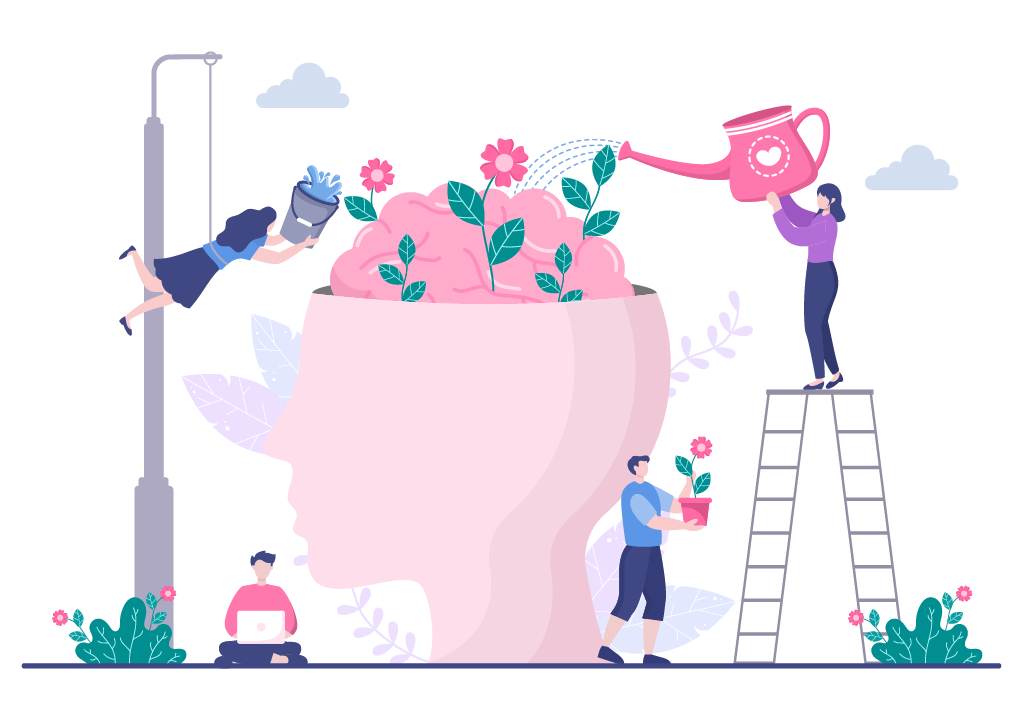
Inclusive Teaching
We recognize that land acknowledgment does not equate to actions that we must take as an institution toward decolonization, anti-racism and respect. We have a long way to go in recognizing and addressing systemic equity issues and the visible and invisible barriers within our educational institution. We are in a position of privilege to take deliberate action to address these issues.
As a unit of a Land, Sea and Space Grant institution, we acknowledge the university system’s role in forming and maintaining colonial structures of power through land seizure and assimilation via education, among other tactics. Recognizing this context, we seek approaches to teaching and learning that are decolonial, anti-racist, trauma-informed and continuously reexamined.
Upcoming Events and Opportunities
Events and presentations related to inclusive teaching practice will be announced on our events page.
Related Publications and Resources
Please explore the following Teaching Tips and event resources related to Inclusive Practice in teaching and learning.
-
Faculty Perspectives: Open Educational Resources

Open Education Resources (OER) are freely accessible teaching and learning materials that are openly licensed, allowing faculty to legally and freely share, use, and modify educational content for their courses.…
-
Ways to support your SSS students in/out of the classroom

Student Support Services (SSS), is a federally funded program for first-gen, low-income, and disabled students, which aims to increase academic achievement. Online and in-person students may face financial difficulties, need…
-
Supporting Students with Mental Health Challenges

Campuses across the nation are seeing a rise in the frequency and intensity of mental health challenges among college students. This trend is apparent at UAF and many staff and…
-
Supporting online learners: academics and beyond

Online learners often face additional challenges to their education than those that are able to attend in-person. Student Support Services has been able to adapt their services in order to…
-
Leveraging campus partnerships to reinforce help-seeking behaviors

Faculty are a key conduit in a student’s academic path—connecting them to vital resources in the virtual and physical campus environment. Educators have an opportunity to model help-seeking behaviors that…
-
Mental health first aid

As we continue through the winter season, the cold and dark becomes an ever-present factor in our daily mental health. The Student Health and Counseling Center (SHCC) has some helpful…

Accessibility
As a federally-funded institution, UAF has a responsibility to consider accessibility in both its physical and digital public spaces. Learn more about the legal requirements and theories that govern our approach to accessibility.
The UAF Center for Teaching and Learning supports tools and services that can be used to proactively address accessibility barriers. These tools include Ally in Canvas and Grackle Drive.
Additionally, faculty have an obligation to provide reasonable accommodations for students with disabilities enrolled in their courses. The UAF Center for Teaching and Learning works in partnership with Disability Services to assist instructors with digital accessibility concerns.
Professional captioning services are available for instructional video content that needs accurate captioning in response to a request for accommodations from Disability Services. Depending on availability of funds, professional captioning services are also available for other UAF-affiliated public-facing educational videos. Use the Caption Request Form to request this service.
See also: Understanding Accommodations Processes

Course Assessment
Assess your own course for inclusive design with out Online Course Evaluation rubric. You may also use this resource to assist and augment peer course reviews. When you follow the button link on the left you will receive your own copy of the rubric as a Google Doc, which will be saved to Google Drive.

Decolonial & Indigenous Pedagogies
Decolonial and Indigenous pedagogies celebrate Indigenous ways of knowing and learning. Recognizing the long history of education as a colonial force in Alaska and the nation–and other colonized lands–decolonial pedagogies seek to reduce this harm and repair relationships with Indigenous peoples and places that education institutions occupy. These teaching practices provide guidance on creating classroom spaces that welcome and affirm Native students and support better relationships for all people entering an educational space.
See also: Decolonizing/Indigenizing Pedagogy – an ongoing collaboration and learning process. Through this website, we share resources, materials, and connections to guide our colleagues who join us in this work.

Learner-Centered Syllabi
Research shows a learner-centered syllabus increases positive student perception of the course and instructor and generally leads to better learning outcomes (Wheeler, Palmer & Aneece, 2019). Learner-centered syllabi prioritize students’ needs, emphasizing engagement, empowerment, and a tailored learning experience. A learner-centered syllabus removes the emphasis on requirements to pass and instead provides information on how and what students will learn in the course. They go beyond outlining content and assessments, incorporating elements that actively involve students and consider their diverse backgrounds and preferences for a more inclusive and dynamic educational approach.
See also: Toward a Cruelty-Free Syllabi

Open Education Practice
Open education is founded on the idea that a culture of openness leads to better ideas. In open education, everyone can work together as co-creators of knowledge in a way that helps redefine resources in which there are groups that are underrepresented and can share back with the wider community. Open education may include ideas like collaborative contribution to a Wikipedia article, sharing data openly for anyone to use, and creating and sharing resources that others can download and modify beyond the classroom.
See also: OER Innovation Quest – a one-semester program to help faculty increase the number of courses at UAF designated as no/low-cost materials (NoLo) and foster innovation through adopting and creating OER materials.

Trauma-Informed Pedagogy
Trauma-informed pedagogy recognizes that we all enter the classroom with a range of experiences that shape our teaching and learning, with a focus on how trauma can create particular challenges in a classroom environment. Further, it emphasizes that trauma is not just an individual event but can move generationally and through communities. Trauma-informed pedagogy offers insights into creating a classroom environment that supports and celebrates the strengths of learners and teachers who carry trauma with them.

Universal Design for Learning
Universal Design for Learning is a framework for course design that emphasizes choices that accommodate a range of student variability in learning style and needs. Adapted from universal design in architecture and city planning, Universal Design for Learning encourages instructors to make proactive choices that will encourage better access for all students. The theory suggests that design choices can create “disabling” environments, and it challenges instructors to create class spaces that emphasize student strength, not deficiency.
See also: iTeach Online – a self-paced program that introduces pedagogy in higher education, with a particular emphasis on applying Universal Design for Learning across teaching modalities.

Additional Programming
Book Clubs – Open to faculty, staff, and students across any campus and focused on Indigenous authors, teaching and learning and more.
LEAP – a semester-long program that pairs participating faculty with undergraduate students trained to provide high-quality course feedback. Feedback spans many elements of course design, all with inclusive practices at the foundation.
